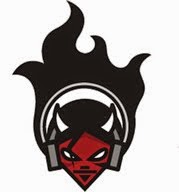Rebennack’s children had told him nothing but good things about the Black Keys, so the pair decided to try out the new musical marriage at the 2011 Bonnaroo Festival, the resulting jam session leading to the recording of Locked Down, the follow-up to Dr. John’s acclaimed 2010 album Tribal, in Auerbach’s Nashville studio with a group of musicians hand-picked by the producer. The results seem to have exceeded both men’s expectations, described in the album’s liner notes as “a return to the heady sound that defined the legend of Dr. John and a new chapter in a long book.”
Dr. John’s Locked Down
It doesn’t take song for Locked Down to display an innate musical chemistry between the musical legend and his (relatively) young acolyte. The album-opening title track is a sordid tale of life on the wrong side of the law; Dr. John’s soulful, patois-heavy vocals and street-smart, slang-ridden lyrical imagery matched by a deep groove fueled by chiming keyboards and energetic percussion. By the time that Auerbach’s guitar solo jumps out at you, it cuts like a knife, leaving as unexpectedly as it arrived. The New Orleans pedigree of “Revolution” shines so brightly that you’ll need sunglasses, bleating horns striving with a dangerous, syncopated rhythm, the singer’s shotgun vocals slung low but effective in the mix.
Opening (and closing) with a found snippet of sound from an old movie or TV show, “Big Shot” perfectly captures Dr. John’s infamous “Night Tripper” persona. Above a languid groove, the singer spits out lyrics like a conman’s tease, the song itself evincing a brassy New Orleans vibe that swings and sways like an out-of-control metronome. By contrast, “Ice Age” masks it social commentary with a mix of Cajun-styled swamp-blues and old school R&B, Dr. John’s stream-of-consciousness lyrical rant be-bopping and scatting machinegun-like above a rich, blustery soundtrack complete with swaggering percussion and scraps of guitar and keys.
Kingdom of Izzness
The up-tempo “Getaway” continues in a similar jump-n-jive vein, the song’s brief, albeit image-filled lyrics almost overwhelmed by a wall of instrumentation and backing harmonies that send wave upon wave of sound up against Dr. John’s vocals. Auerbach’s fierce guitar solo almost three-and-a-half minutes into the song delivers a scorched-earth finish to the sentiment, firmly punctuating the song’s tale of troubled lovers. No less confusing is “Kingdom of Izzness,” some sort of deep, back-alley wisdom going on in the seemingly random words and thoughts that Dr. John strings together here, the lyrics threaded in between the song’s rich mix of blues, soul, and gospel music.
The spry “Eleggua” is funky lil’ romp across the New Orleans musical landscape, the song’s instrumentation bringing to mind the Meters, fife-and-drum music, barrelhouse blues, and much, much more with Dr. John’s rich vocals hidden beneath the cacophonic soundtrack. Locked Down closes with “God’s Sure Good,” an old-fashioned, houserockin’ rhythm and blues song with a great deal of soul rising up above the wiry fretwork, keyboard riffs, gospel-tinged harmony vocals, and fluid rhythms. Dr. John’s vocals are inspired and energetic, tipping towards a sort of spiritual joy as his keyboards reach a crescendo of life and light above this mere mortal plain.
The Reverend’s Bottom Line
Auerbach has delivered everything he promised Rebennack, producing in Locked Down an album that perfectly captures the spirit and energy of the singer’s earlier work under the Night Tripper persona while providing Dr. John’s sound with a raw, raucous contemporary edge. Auerbach’s production of Locked Down is nuanced and light-handed; never do you get the sense that the guitarist is trying to push the singer out of his own album like some producers will do.
Instead, Auerbach provides Dr. John with the support and motivation to deliver one of the best albums of his lengthy career. While Rebennack’s efforts these past few years have certainly provided several fine showcases for the artist’s immense talents and songwriting skills, with a little help from a sympathetic producer and instrumentalist like Auerbach, Dr. John has delivered what will be considered a late-career tour-de-force in Locked Down. (Nonesuch Records, released April 3, 2012)










